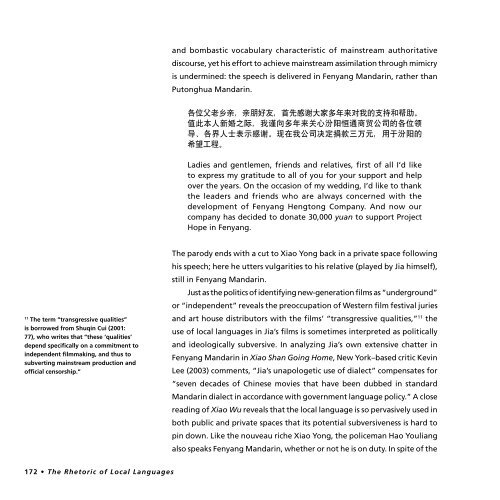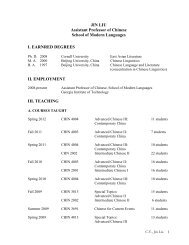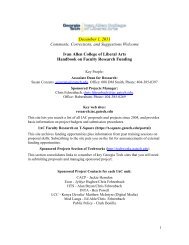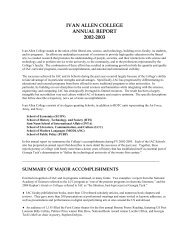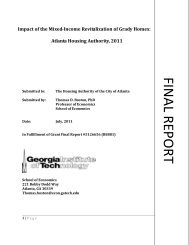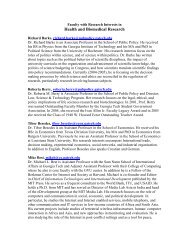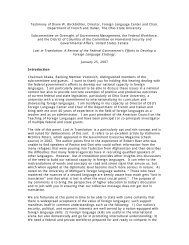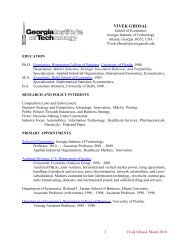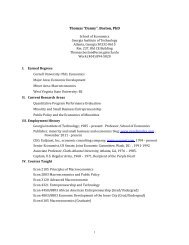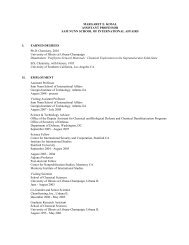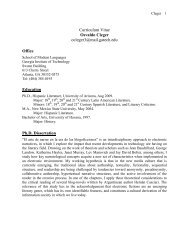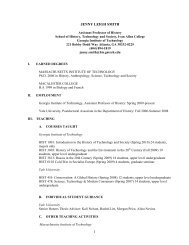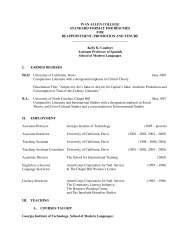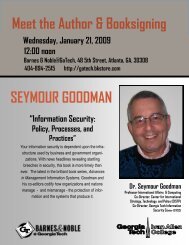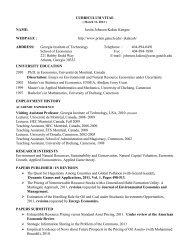Read this paper
Read this paper
Read this paper
You also want an ePaper? Increase the reach of your titles
YUMPU automatically turns print PDFs into web optimized ePapers that Google loves.
and bombastic vocabulary characteristic of mainstream authoritative<br />
discourse, yet his effort to achieve mainstream assimilation through mimicry<br />
is undermined: the speech is delivered in Fenyang Mandarin, rather than<br />
Putonghua Mandarin.<br />
各 位 父 老 乡 亲 , 亲 朋 好 友 , 首 先 感 谢 大 家 多 年 来 对 我 的 支 持 和 帮 助 。<br />
值 此 本 人 新 婚 之 际 , 我 谨 向 多 年 来 关 心 汾 阳 恒 通 商 贸 公 司 的 各 位 领<br />
导 、 各 界 人 士 表 示 感 谢 。 现 在 我 公 司 决 定 捐 款 三 万 元 , 用 于 汾 阳 的<br />
希 望 工 程 。<br />
Ladies and gentlemen, friends and relatives, first of all I’d like<br />
to express my gratitude to all of you for your support and help<br />
over the years. On the occasion of my wedding, I’d like to thank<br />
the leaders and friends who are always concerned with the<br />
development of Fenyang Hengtong Company. And now our<br />
company has decided to donate 30,000 yuan to support Project<br />
Hope in Fenyang.<br />
11<br />
The term “transgressive qualities”<br />
is borrowed from Shuqin Cui (2001:<br />
77), who writes that “these ‘qualities’<br />
depend specifically on a commitment to<br />
independent filmmaking, and thus to<br />
subverting mainstream production and<br />
official censorship.”<br />
The parody ends with a cut to Xiao Yong back in a private space following<br />
his speech; here he utters vulgarities to his relative (played by Jia himself),<br />
still in Fenyang Mandarin.<br />
Just as the politics of identifying new-generation films as “underground”<br />
or “independent” reveals the preoccupation of Western film festival juries<br />
and art house distributors with the films’ “transgressive qualities,” 11 the<br />
use of local languages in Jia’s films is sometimes interpreted as politically<br />
and ideologically subversive. In analyzing Jia’s own extensive chatter in<br />
Fenyang Mandarin in Xiao Shan Going Home, New York–based critic Kevin<br />
Lee (2003) comments, “Jia’s unapologetic use of dialect” compensates for<br />
“seven decades of Chinese movies that have been dubbed in standard<br />
Mandarin dialect in accordance with government language policy.” A close<br />
reading of Xiao Wu reveals that the local language is so pervasively used in<br />
both public and private spaces that its potential subversiveness is hard to<br />
pin down. Like the nouveau riche Xiao Yong, the policeman Hao Youliang<br />
also speaks Fenyang Mandarin, whether or not he is on duty. In spite of the<br />
172 • The Rhetoric of Local Languages<br />
MCLC 18.2.indd 172<br />
12/20/06 2:01:36 PM


